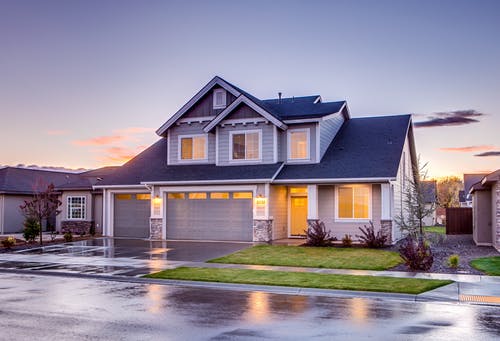
You’re aware that water is an essential element of life. But only because you will need water to live, does not mean that your home needs it too. In reality, water everywhere in or around your house can be a critical issue with expensive consequences. You may believe that a small bit of water isn’t a big thing. How much? Here are a couple of things you should understand:
Factors that contribute to price include the dimensions of the cellar, the harshness of the flooding, and also the duration of time that the basement was flooded.
Homeowners or flood insurance will often cover water damage expenses but not necessarily the entire amount (also it is dependent upon the cause too).
With a few cautious improvements, measures, and prevention procedures, many homeowners may all but eliminate the danger of water damage destroying your house.
Among the most crucial things you can do in order to prevent water damage and help you save money is to be conscious of your house environment and remain informed about what is around you. Just what does this mean? Here are a couple of things you should understand:
- Know how old your house is, what exactly the pipes are constructed of, and which kind of problems usually bothers houses like yours. If you reside in an older home it is important to be aware of what the pipes are manufactured from (you can get out that by calling plumbing assistance, asking the former homeowner, or even hiring a contractor). You will find several pipe materials utilized in old and new houses, and some are more vulnerable to leaks than many others.
- Be conscious of your own climate. Can you live someplace cold and snowy? If that’s the case, you may have to insulate your plumbing during the winter. As stated previously, a burst pipe may cost tens of thousands of dollars to repair. But do not believe the sole pipes you want to be concerned about are the ones that are vulnerable; even pipes beneath your house, in your garage, or even near outer walls may freeze. Fortunately, all it requires is a little foam insulation to prevent problems.
- Becoming conscious of the weather issues are typical in your region. Weather is maybe the biggest factor that you want to look at when preventing water damage. Ensure to understand what to anticipate and take certain steps to guard your property.
- Look at your water bill every month and listen to odd fluctuations. If you discover you’re paying more than you need to, it may indicate a flow. Any harm to your roof may result in serious problems during the remainder of your property. If you can not see your roofing or are incapable of scaling on it, then call a roofing firm for aid.
SPRINKLER SYSTEMS
Damaged sprinkler systems are a significant source of lawn and basement floods around the nation. It is typical for sprinklers to wear over time and with regular usage, eventually resulting in leaks. And in regions that fall below freezing throughout the winter, burst or broken pipes are much more prevalent. If your town melts the water into your irrigation systems every autumn, be sure to understand when they’ll turn the water back on. As soon as you understand when the water is going to be turned on from the spring, then spend a couple of days as soon as they do this seeing your lawn for any soggy, moist, or unexpectedly darkened places. If you become aware of any surplus water, then you’ll have to fix the damage immediately. If the primary water line doesn’t flow, turn your irrigation system on and await the very same indications of damage. If the sprinklers appear to be operating badly or with reduced strain, there could be a leak somewhere in the computer system.
FIXING THE DAMAGE
We can help you mend and fix whatever might be causing water damage through your property. However, we know that life occurs and a few issues simply can not be stopped. If that is true, you will need to act quickly to save your house and possessions. The very first thing you have to do if you’ve got a leak or to prevent more water damage would be to switch off the water during your house. If the flooding is caused by Mother Nature, think about putting sandbags along with other dams around your house as an alternate. When the water is away (or so the flow is diverted) be sure that you turn the power off during your property. It’s quite easy to electrocute yourself through flooding should you keep the power on. Following the electricity and water are away, remove all your possessions and furniture as swiftly as possible. You’ll have to dry and fix electronics and furniture, but a lot of it may be uninstalled if you act fast. In the event the water subsides or melts by itself, you’ll have to wash any moist surfaces to prevent mold, mold, and bacteria from growing. Avoid using direct or high heating, as that may ruin clothes and warp most substances. As soon as you’ve completed your best and when there’s still water in your house, it’s time to seek out expert assistance. Like we mentioned earlier, we’re prepared with all the resources and expertise you want, when you want us, even if you can not do it all on your own.
Maintaining your home safe from water damage in the interior can also be crucial. Have a look at the best way to secure your house from water damage. Has your house suffered damages following a recent storm? Discover how to manage storm and water damage. For specialist water damage restoration mold or repair removal support, speak to your regional PuroClean St Augustine office.

